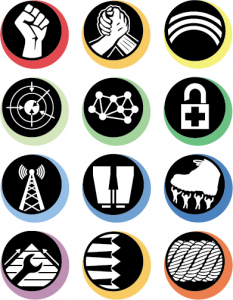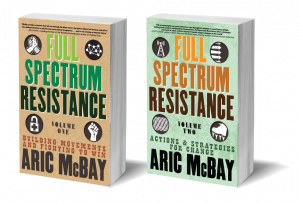Later, I went for a walk in the woods to think things over. There was a long narrow strip of forest near our school, braided with little paths. It stretched alongside three different schools—our high school at one end, my elementary school in the middle, a university at the far end. I walked by a fenced-off little cemetery in the woods, long abandoned, which I had passed many times before.
At the far end of the path were a few boarded-up old buildings. Near one, which looked like a chapel, was a plaque I had never been close enough to read before. On inspection, it informed me that I was standing on the site of a former residential school (founded as a mission in 1832). At first I believed the plaque referred to the little chapel, and then realized the plaque referred to the main four-story building of the university. I had been in that building hundreds of times without ever realizing why it had been built.
As I went back into the woods to walk home I passed the cemetery again, and felt a chill. I went in through a little gate for the first time, and began to read the names and dates on the rough headstones. The birth and death dates were so close together: they were only children. The cemetery I’d walked past so many times was full of children who had been taken from their families, from their culture, and who had died in the residential school. I fell to my knees with tears in my eyes.
There was a reservation twenty minutes by car from where I lived. They knew all of the things I took so long to learn. But I had never been there, and I had never met anyone who lived there. It was a kind of de facto segregation. (One of my teachers explained that South African officials visited Canada when they were setting up apartheid so they could model it after the reservation system here.)
For a long time I had believed that stopping the destruction of the planet was a matter of correcting misunderstandings about the planet and of choosing better technologies. But I was learning that Canadian culture—the existence of Canada—was built on a foundation of atrocity. Education alone could not correct a political arrangement that was so fundamentally rotten. I began to understand something about how power worked. And so I started to grasp a bit of radical politics.
At the time I didn’t really understand the implications of this. I lacked an adequate grounding in the history of social change, and there weren’t many other proto-radicals around to discuss it with. But I wanted to understand. To find those people. To make actual change. To resist.


